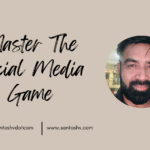The term midlife crisis was first introduced by Elliott Jaques in 1965 to describe the emotional turmoil some individuals experience when they confront their mortality and the limitations of life in middle adulthood. While often dramatized in popular culture, the midlife crisis represents a real and complex psychological transition.
1. What Is a Midlife Crisis?
A midlife crisis is a psychological phenomenon typically experienced during the transitional period of middle adulthood, often between the ages of 40 and 60 (its 30 to 50 now) . It is marked by deep introspection, self-doubt, and an existential questioning of one’s achievements, purpose, identity, and mortality.
1.1 Key Features & Theme
- Questioning the meaning of life and personal accomplishments
- Anxiety about aging and physical decline
- Regret over past decisions or missed opportunities
- Fear of death or the awareness of one’s finite existence
- Desire for reinvention or radical change
1.2 Psychological Theories Explaining Midlife Crisis
- 1.2.1 Psychoanalytic Theory : Freudian views imply that unconscious conflicts can re-emerge during midlife, particularly around issues of mortality and unresolved Oedipal dynamics. The recognition of time limitations may trigger defenses such as denial, projection, or displacement.
- 1.2.2 Humanistic Perspective : Carl Rogers and Abraham Maslow emphasized self-actualization. A crisis may occur when there is a perceived gap between one’s current state and the ideal self. This dissonance prompts reflection and sometimes redirection.
- 1.2.3 Existential Psychology : Existential theorists like Viktor Frankl and Rollo May argue that midlife triggers awareness of death, leading individuals to reassess meaning, purpose, and authenticity.
- 1.2.4 Cognitive-Behavioral View : From this lens, midlife crisis is influenced by cognitive appraisals of life events, such as career stagnation or relationship dissatisfaction. Maladaptive thought patterns can exacerbate distress.
1.3 Common Signs and Symptoms
A midlife crisis can manifest in a wide variety of emotional, behavioral, and psychological symptoms. These may include:
1.3.1 Emotional Symptoms:
- Depression or prolonged sadness
- Irritability and mood swings
- Feelings of emptiness or despair
- Anxiety and restlessness
1.3.2 Behavioral Changes:
- Sudden career changes
- Extramarital affairs or impulsive relationships
- Buying expensive or unnecessary items (symbolizing youth or freedom)
- A desire to escape responsibilities
1.3.3 Psychological Patterns:
- Obsessive comparison with others
- Regret about unachieved goals
- Confusion about identity and values
- Introspection or spiritual seeking
1.4 Gender Differences
Midlife crises can manifest differently in men and women:
1.4.1 Men:
- More likely to externalize the crisis through action (e.g., career shifts, affairs)
- Often tied to professional identity and social status
- Focus on lost youth and physical decline
1.4.1 Women:
- More likely to internalize the crisis with emotional reflection
- Tied to relational roles (e.g., mother, wife)
- Experience hormonal changes (menopause) that amplify the emotional intensity
2. Why Mid Life Crisis
From a Freudian perspective, unresolved conflicts from earlier stages of life may resurface in midlife. Carl Jung viewed midlife as a crucial phase for individuation—integrating unconscious aspects of the self to achieve psychological wholeness. Jung believed the ego (conscious identity) must reconcile with the shadow (repressed elements) during this period.
2.1 Causes and Triggers
While not everyone experiences a midlife crisis, several factors can make it more likely:
2.1.1 Existential Realizations
- Awareness of aging and mortality
- Realization that time is limited
- Recognition that many dreams may never be fulfilled
2.1.2 Life Events
- Children leaving home (empty nest syndrome)
- Loss of parents or loved ones
- Divorce or marital dissatisfaction
- Career stagnation or job loss
2.1.3 Psychological Triggers
- Repressed desires resurfacing
- Unresolved trauma or regret
- Identity conflict or lack of purpose
2.2 The Psychology Behind a Midlife Crisis
Midlife is a developmental milestone that involves both loss and opportunity. Psychologists such as Carl Jung and Erik Erikson offer important frameworks to understand the inner dynamics of this period.
2.2.1 Carl Jung’s View
Jung described midlife as a crucial point of individuation—a process where the ego integrates with the deeper self. According to Jung, the first half of life is about establishing identity and external achievements, while the second half is about turning inward to find deeper meaning and purpose.
“Wholeness is not achieved by cutting off a portion of one’s being, but by integration of the contraries.” – Carl Jung
2.2.2 Erik Erikson’s Theory
Erikson identified the key conflict of midlife as Generativity vs. Stagnation. Generativity involves contributing to society, guiding the next generation, and creating meaning beyond oneself. Stagnation, on the other hand, leads to emotional paralysis, boredom, and a sense of worthlessness.
2.3 Influential Factors Behind a Midlife Crisis
A midlife crisis doesn’t occur in a vacuum—it is shaped by a variety of internal and external influences. Understanding these influential factors can help psychologists, counselors, and individuals themselves recognize, prevent, or navigate this life stage more effectively.
2.3.1 Biological Factors
A: Aging and Physical Decline
- Physical changes such as reduced stamina, wrinkles, or hair loss can confront people with their mortality and loss of youth.
- Chronic illnesses or hormonal changes (e.g., menopause in women, testosterone decline in men) often affect mood, energy, and self-esteem.
B: Brain Chemistry
- Changes in serotonin and cortisol levels may contribute to depression, anxiety, and emotional instability.
- Shifts in neurotransmitters like dopamine (linked to reward and motivation) may cause restlessness or dissatisfaction.
2.3.2 Psychological Factors
A: Unresolved Past Conflicts
- Childhood trauma, unmet emotional needs, or unresolved regrets from earlier life stages may resurface in midlife.
- These unresolved issues can provoke a deep sense of incompletion or failure.
B: Personality Traits
- People high in neuroticism are more likely to experience emotional instability and existential anxiety.
- Those with a rigid identity (overidentified with career, appearance, or social status) may struggle more during transitions.
C: Fear of Mortality
- The growing awareness of limited time left often leads to existential questioning and a reevaluation of one’s life purpose.
2.3.3 Social and Cultural Factors
A: Societal Expectations
- Culture heavily influences how we view aging and success. In youth-oriented cultures, aging may feel like a loss of value or relevance.
- Unrealistic societal standards (e.g., financial wealth, physical attractiveness, social influence) can fuel inadequacy and shame.
B: Cultural Narratives of Midlife
- In many Western societies, the idea of the “midlife crisis” itself is a cultural script, sometimes causing self-fulfilling expectations.
C: Changes in Roles and Relationships
- Children leaving home, aging parents, or marital dissatisfaction can create a sense of emptiness and disconnection.
- Shifts in identity roles (e.g., from active parent to empty-nester) can leave people questioning their relevance and identity.
2.3.4 Cognitive and Developmental Factors
A: Midlife Cognitive Shifts
- With age, individuals begin thinking more abstractly about meaning, legacy, and spiritual or philosophical questions.
- The brain’s prefrontal cortex matures, allowing for better planning and perspective-taking—but also prompting deeper introspection.
B: Developmental Transitions
- According to Erik Erikson, midlife is dominated by the conflict of Generativity vs. Stagnation—either one feels they are contributing meaningfully to the world, or they feel purposeless and stuck.
2.3.5 Life Events and Transitions
A: Career Plateau or Job Loss
- Reaching a career ceiling or being laid off can prompt fears of wasted potential or irrelevance.
- For many, identity is deeply tied to work; losing a job can feel like losing the self.
B: Divorce or Relationship Breakdown
- Marital issues often peak during midlife, leading to emotional isolation, regret, or attempts to reclaim youth through new relationships.
C: Death of Loved Ones
- The loss of parents, friends, or peers can serve as a powerful reminder of one’s own mortality and provoke existential reflection.
2.3.6 Technology and Media Influence
A. Social Media and Idealized Lives
- Constant exposure to curated images of success and happiness can distort self-perception and increase dissatisfaction.
B. Fear of Obsolescence
- The rapid pace of technological change can leave middle-aged individuals feeling technologically outdated or professionally irrelevant.
3. How To Cope with Midlife Crisis
3.1 Is It Really a Crisis? Or a Transition?
Not all middle-aged individuals experience a crisis. Research suggests that midlife transition may be a better term, as many people use this period for growth and renewal rather than falling into despair. In fact, those who face and work through their midlife challenges often emerge with:
- Greater emotional intelligence
- Clearer values and priorities
- Deeper relationships
- Increased life satisfaction
3.2 Coping Strategies and Interventions
3.2.1 Psychological Coping Mechanisms
- Reframing aging as an opportunity
- Life review and narrative therapy
- Setting new goals and realistic expectations
3.2.2 Therapeutic Interventions
- Cognitive Behavioral Therapy (CBT): Addressing maladaptive thoughts
- Existential Therapy: Exploring meaning and purpose
- Psychoanalytic Therapy: Unpacking unconscious conflicts
- Mindfulness-Based Stress Reduction (MBSR): Promoting present awareness
3.2.3 Social Support and Lifestyle
- Building strong relationships
- Engaging in creative or spiritual pursuits
- Prioritizing physical health and exercise
3.3 Steps to Navigate a Midlife Crisis Positively
Rather than a breakdown, midlife can be seen as a breakthrough. It’s an invitation to reevaluate one’s life path, rediscover passions, and realign with authentic goals.
3.3.1 Self-Reflection
- Journaling, therapy, or spiritual practices
- Questioning old beliefs and assumptions
- Exploring suppressed desires or interests
3.3.2 Reinventing Purpose
- Finding new hobbies, causes, or careers
- Volunteering or mentoring
- Creating something meaningful (writing, art, business)
3.3.3 Building Resilience
- Practicing mindfulness and self-compassion
- Strengthening relationships
- Seeking professional help if needed
3.3.4 Accepting Change
- Cultivating gratitude for the present moment
- Embracing impermanence and aging
- Letting go of past regrets
3.4 Neuroscientific and Lifestyle Interventions
3.4.1 Exercise and Neurogenesis
Regular aerobic exercise promotes hippocampal neurogenesis and dopaminergic function, improving mood and cognitive performance.
3.4.2 Mindfulness and Meditation
Mindfulness-Based Stress Reduction (MBSR) has been shown to:
- Reduce amygdala activity (emotional reactivity)
- Enhance prefrontal cortex regulation
- Improve emotional resilience and cognitive clarity
3.4.3 Nutrition and Neurotransmitter Support
Balanced nutrition (rich in omega-3s, antioxidants, and B-vitamins) supports neurochemical balance and cognitive function.
3.4.4 Sleep Hygiene
Poor sleep worsens emotional regulation and executive functioning. Addressing insomnia or poor sleep patterns is crucial.
3.5 Midlife Growth: The Other Side of Crisis
A midlife crisis can catalyze profound personal growth. A midlife crisis is not a sign of failure—it is a natural and necessary turning point. Like adolescence, it is a rite of passage that reshapes identity. When faced with courage and curiosity, this period can lead to profound transformation, deeper fulfillment, and a more meaningful life.
3.5.1 Post-Crisis Reorientation
- New career paths
- Stronger family bonds
- Renewed purpose or spirituality
3.5.2 Midlife as a Second Adulthood
Gail Sheehy describes it as a “second adulthood,” where individuals, having confronted loss and limitations, embrace authenticity and renewed freedom.
3.5.3 Theories of Positive Aging
- Successful Aging (Rowe & Kahn): Focuses on adaptation, engagement, and vitality
- Gerotranscendence (Tornstam): Proposes a shift from materialistic to existential and spiritual goals in late adulthood
- Wisdom Development: Midlife can mark the emergence of reflective judgment and emotional maturity
3.5 The Role of Therapy and Support
Therapy can be a powerful ally during a midlife crisis. Cognitive Behavioral Therapy (CBT), Existential Therapy, and Jungian Analysis are especially helpful in:
- Addressing distorted thinking patterns
- Reframing regrets into learning experiences
- Exploring deeper unconscious motivations
Support groups or life coaches can also provide connection and direction.





